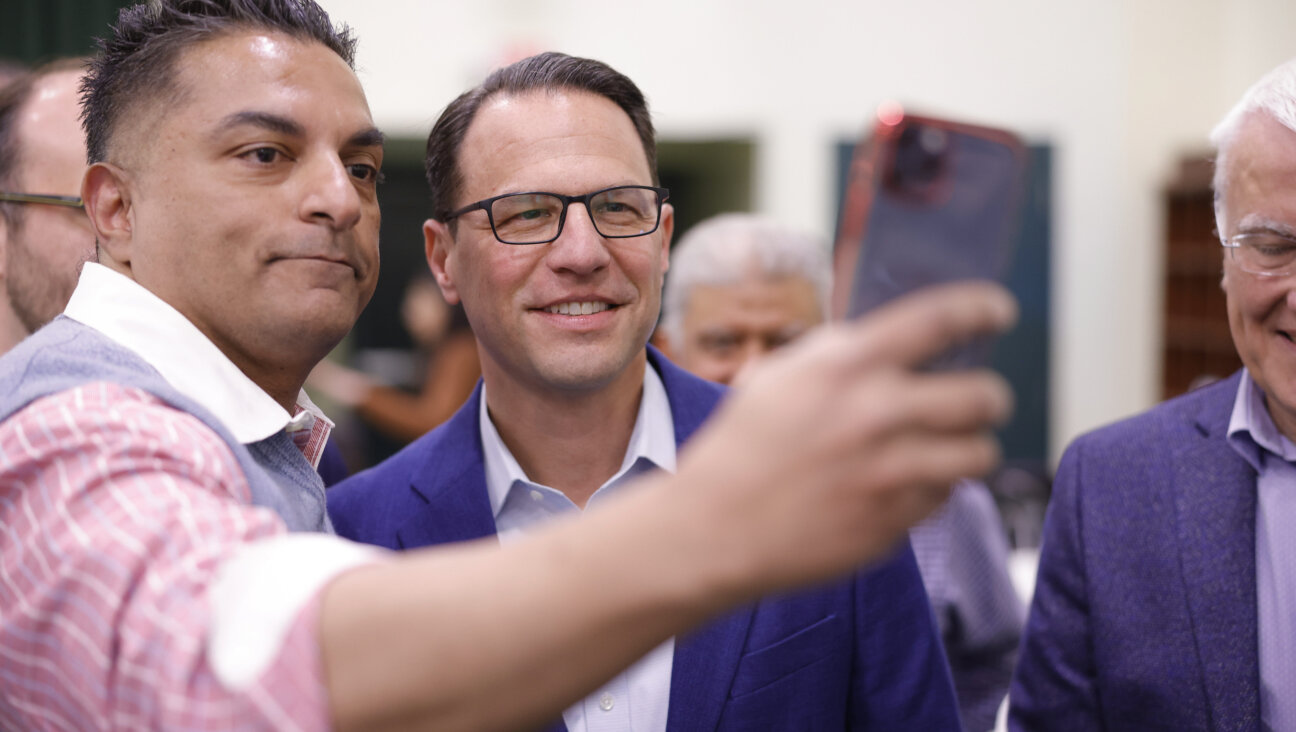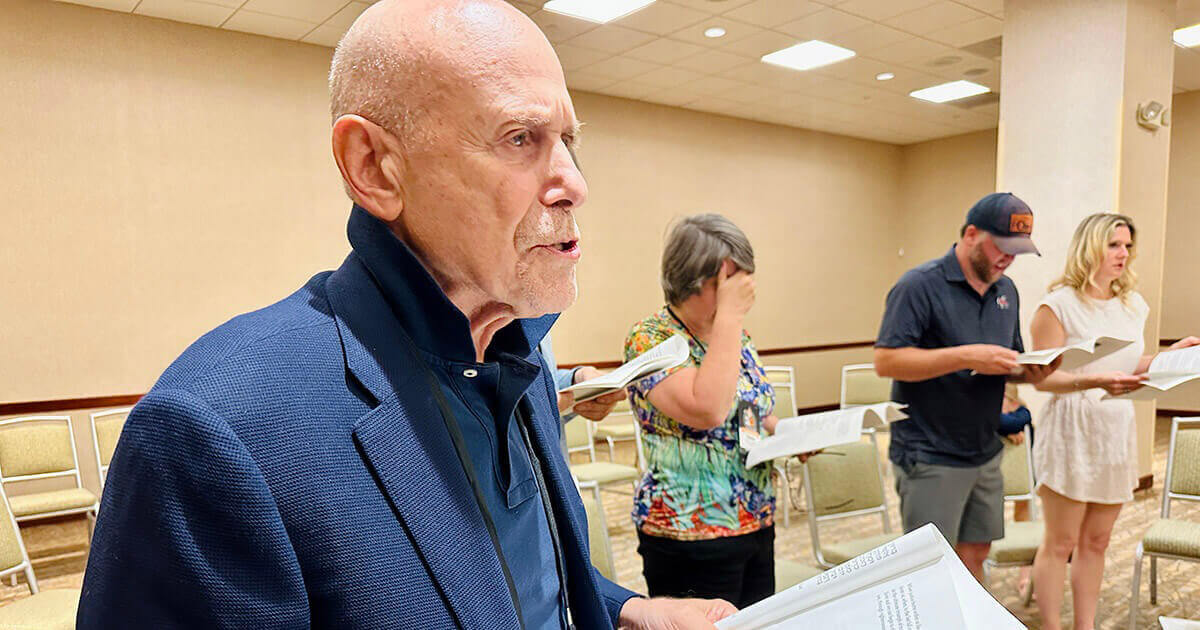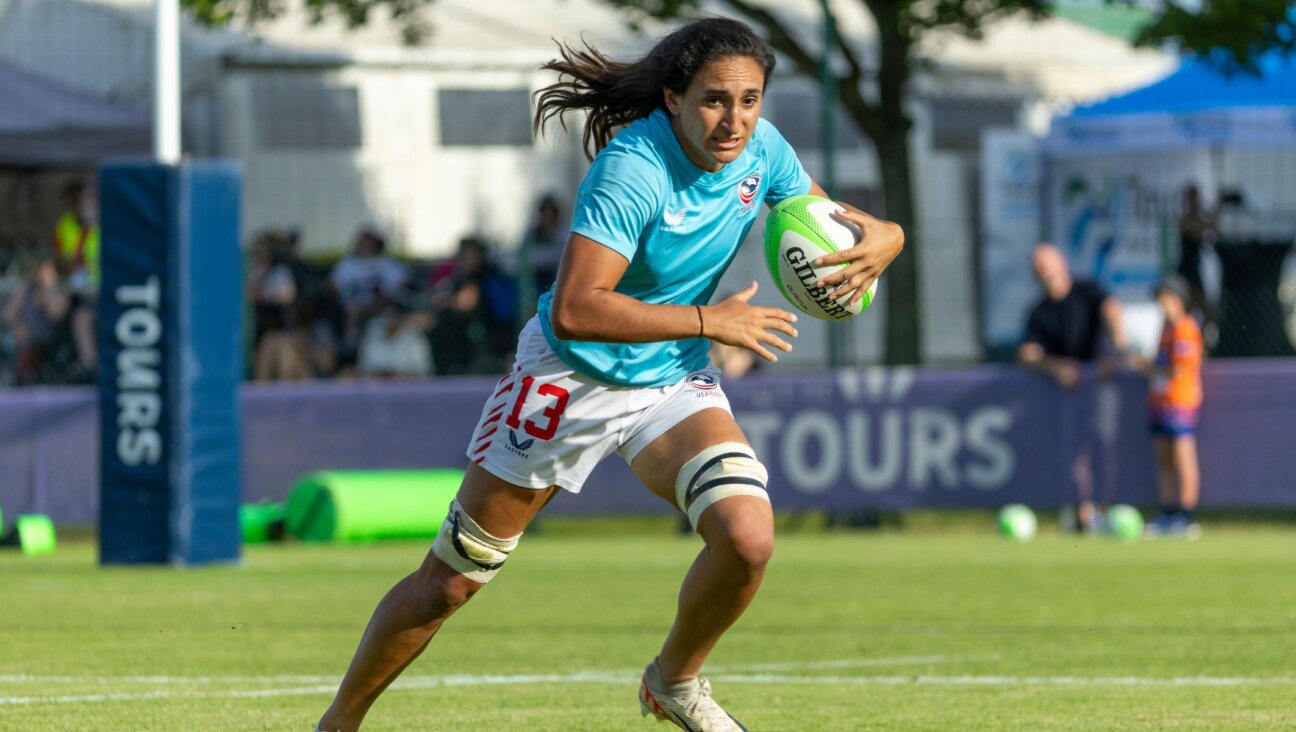A Hip-Hop Tour of the Afterlife
Following 9/11, Tim Barsky felt the world was upside down — not just because of global affairs, but also because of events closer to home. First, Barsky’s next-door neighbor was gunned down in a drive-by shooting as Barsky was sitting on his own front porch. Shortly afterward, in a succession of events, another neighbor was shot to death by a man with an AK47 assault rifle; a friend of Barsky’s went crazy on amphetamines, and Barsky himself was arrested, along with four housemates and an 11-year-old neighbor, for filming the Oakland, Calif., police beating yet another neighbor until that neighbor went into a seizure.
“It was like a dream where everything is unfamiliar,” Barsky recalled in an interview with the Forward. “I was arrested for felony obstruction of justice, then I was out on bail for a felony — which was a little strange, [since] I was supposed to be a college professor or lawyer. If my mom had seen me, she would have cried.”
As he plummeted into despair, Barsky found himself wondering whether the afterlife might not be a continuation of the same chaos on earth. Furthermore, he wondered: What if our actions on this planet have a direct impact on the world to come? “You have an image that the physical world is [falling apart] but that when you die, everything will be okay,” Barsky mused. “But what if it’s upside down, chaotic.…What if [the afterlife] has been downsized, if it’s collapsed? What if everyone has to work in a sweatshop in the Buddhist heaven?”
To explore this possibility, Barsky drew on his life experiences as a street performer, beat boxer (one who engages in vocal percussion), flutist and student of Islamic and Jewish mysticism, creating “The Bright River” — a 21st-century hip hop theater spin-off of Dante’s “The Inferno,” co-produced by the Everyday Ensemble, Epic Arts and A Traveling Jewish Theatre, all in the San Francisco Bay Area. The production tells the story of a young American Jewish soldier — a mixture of Yemenite and Ashkenazic heritage — killed during battle in Iraq; his girlfriend, Calliope, a young woman with Cystic Fibrosis, who committed suicide so that she could help her boyfriend in the afterlife; a “fixer” named Quick, on a mission to set things straight in the world to come, and a raven who works with Death in transporting people to the next world.
“When people ask me to describe [the performance],” beat boxer Andrew Chaiken said, “I say it’s a hip-hop tour of the afterlife — with Persian allegory, Greek myths, Jewish storytelling, rock, political commentary, beat boxing and cello.”
Essential to the performance is an exploration of Purgatory, which, in Barsky’s afterlife, is a central bus station located in the middle of the bridge between life and death. “After all the genocide and wars of the 20th century,” Barsky explains onstage in his character as narrator, “a lot of people died before their time — with no passports, no papers, no money to make it to the other side. The station is overrun by the homeless.”
Taking the audience on a tour through this hell, the performance brings to life stories of invisibility, transience and powerlessness in contemporary society. By the end, the production has drawn heavily on Kabbalah — trying desperately to make sense of the madness around us, searching for some ray of hope amid despair.
“When the story is over, you feel as if there is more for you to do — like inspire others to hope, and to take action,” audience member Keith Decuire said after a recent performance in San Francisco.
One of the unique aspects of this production is its minimal, even nonexistent, use of actors and props. Aside from one storyteller, three musicians and chairs for all of them, the stage is bare.
“I love that there was nothing actually happening onstage, yet we went on a whole journey,” enthused San Francisco resident Sarah Parker Leventer , an audience member. “Everything we saw was in our imagination.… The power of theater is in the minds of the audience. This made a superb use of the imagination.”
Another unique aspect of the production is its use of musical instruments: The performance begins with an unearthly melody coming from offstage — the source of the sound revealed as Barsky walks on, playing a flute by blowing into the opening at the end. “I played flute all my life, but I was told I didn’t have what it takes to be a flutist, that my sound is wrong,” Barsky chuckled. “Now I’m playing it upside down.”
“First it sounded like a shofar, then all of a sudden it was a flute,” commented Rhoda Sakowitz of Boston, who saw the play while visiting her children for Hanukkah. “It was amazing. I’ve never heard or seen anything like it before. It’s very, very clever.”
Once onstage, Barsky continues to play the flute in unusual ways. An upright bass player, a cellist and a beat boxer join him.
“Is it hip hop? Klezmer? Bhangra?” Chaikin asked. “We’re mixing a lot of musical and theatrical styles. Our director is a professional clown, so he brought a lot of clowning elements to it. I love the hybrids — that’s what makes it unique.”
Loolwa Khazzoom has contributed to Marie Claire, The Washington Post, Rolling Stone, Family Circle, The Boston Globe and Seventeen. She is the editor of “The Flying Camel: Essays on Identity by Women of North African and Middle Eastern Jewish Heritage” (Seal Press, 2003) and author of “Consequence: Beyond Resisting Rape” (Pearl in a Million Press, 2002).
THE BRIGHT RIVER performs through January 16, 2005. It previewed at A Traveling Jewish Theatre (470 Florida Street in San Francisco) from Wednesday, December 1 through Saturday, December 4, with all performances at 8 p.m. Opening night was Sunday, December 5, at 7 p.m. at TJT. The show continues its run at TJT through January 2, 2005, and then moves to the Julia Morgan Center for the Arts (2640 College Ave. in Berkeley) for a two-week run, beginning January 5 and concluding January 16, 2005. In San Francisco, all performances were Wednesdays through Saturdays at 8 p.m., with Sunday matinees December 12 and 19 at 3 p.m. In Berkeley, Wednesday through Friday night performances take place at 8 p.m. and Saturday night performances will be at 7 p.m. and at 9 p.m., with Sunday matinees January 9 and 16 at 3 p.m.
A message from our editor-in-chief Jodi Rudoren

We're building on 127 years of independent journalism to help you develop deeper connections to what it means to be Jewish today.
With so much at stake for the Jewish people right now — war, rising antisemitism, a high-stakes U.S. presidential election — American Jews depend on the Forward's perspective, integrity and courage.
— Jodi Rudoren, Editor-in-Chief






















